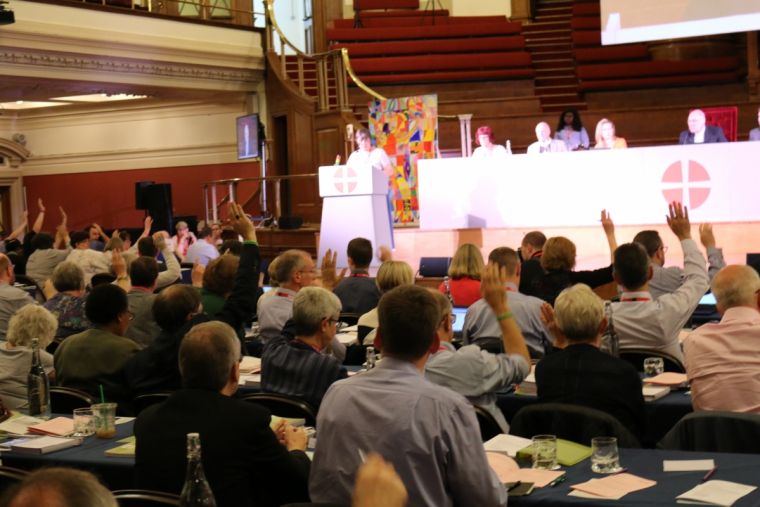Britain's Methodist Church to consider same-sex marriage

British Methodists may decide to allow same-sex marriages in their churches after a vote at the denomination's annual conference yesterday.
The Methodist Conference sets policy for the entire British Methodist Church. After a report from a task group on Marriage and Relationships the Conference agreed it would "revisit" its definition of marriage – it currently says it is between a man and a woman – as part of a wider review of its teaching on marriage and family life.
While the commitment to revisit its position does not necessarily mean the Church will decide to sanction same-sex relationships, many contributors to the debate expressed the hope that it would.
The report was commissioned in 2014 and around 8,000 Methodist Church members have taken part in discussions on its contents.
A previous official position statement was agreed in 1992. However, the Church agreed that this needs revising in the light of changes in society and in the law. Among other issues, the report looks at transgender and intersex people and calls for Methodists to work on including them in the life of the Church.
At the gathering at Methodist Central Hall Westminster, some spoke movingly about their personal circumstances, with one contributor saying he had come out as gay to his family but had never told his church, his "second family". Other participants expressed their opposition to any move to legitimise same-sex marriage in the Methodist Church. However, the vote in favour of revisiting the definition was overwhelmingly carried.
Among those who contributed to the debate was Church of England representative Dr Rachel Jepson, who reflected on the forthcoming debates in the General Synod next week. She said: "Please may I ask you to hold us and those conversations in your prayers. We are on this journey together."
As well as discussing whether to revisit the definition of marriage, the Conference agreed on a definition of homophobia, saying it includes "physical violence or emotional or psychological abuse" and "applying stereotypes and assumptions to people based on their sexual orientation". It also defines what homophobia is not, saying it is not wrong to disagree on matters of scriptural interpretation or to hold or express the view that same sex activity is wrong.
A task group has been appointed to carry out the work on marriage and the family, which is expected to take at least two years.
Task group chair Rev Graham Carter said: "It is essential to take time over this issue because the process of finding a way forward is as important as reaching a decision. Enabling people in the church to talk openly about their differing convictions and value their common commitment to Jesus Christ is key to what it means to be a Christian community.
"The decision of the Conference to establish a working party on the matters of marriage and relationships is an important step which comes from a widespread conversation in which people have listened, respected each other's position and engaged in deep reflection together. The conversations will continue and we will go on responding to the challenges of interpreting God's love for today's society."











